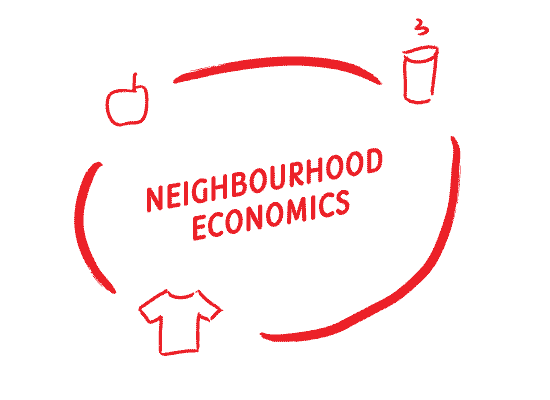When supermarket shopping, I’ve been drawn to the self checkout machine like a green-bag-toting-moth to a flame. Instead of waiting in line for the privilege of having my cereal blipped through the barcode scanner by a sullen and underpaid high school student, the self checkout gives me the power to skip faux-friendly “How do you do’s”, keep my headphones on, and place my groceries in bags in conformance to a very particular and, some might say, anal-retentive personal system (No, the milk cannot be in the same bag as the bread! Of course the carrots need to sit on top of the tomatoes!).
It all began with the disappearance of the corner deli. Shopping at chain stores, what we lost in terms of community, we gained back (and more!) in Red-Spot Specials. We profess our love for local independent greengrocers and bakeries, cafés and bookstores, because these places are friendly and warm and full of history, but when nobody’s looking (which is, frankly, most of the time), we’ll sneak off with our fresh-clipped coupons to foreign-owned franchises and save eight dollars fifty. I’m not immune. You’re not immune. We’re powerless before savings! (See Andy Ihnatko’s recent post on ‘Darwinist consumerism’).
Over the past year, two independent Rundle Street record stores have closed up shop: B Sharp and Big Star. As record-lovers are apt to do, friends and I have lamented the closures, agonised over what this might all mean for the future of local music culture. Why did nobody else care like we did? The truth is that we cared right up to the point where we felt like parting with our money. The last time most of us actually bought a record – or CD, or music DVD – was sometime back in 2006, just prior to signing up for an account on iTunes.
I begin to wonder what hope small retailers have in a world where it’s cheaper, faster, more convenient for me to purchase a title online for my Amazon Kindle (yes, I caved) than walk one block down the road to my local indie bookseller. Is there any way small retailers can appeal to our base instincts in order to ensure their very survival?
At the Moonlight Café in Bernal Heights, San Francisco, your commitment to local community scores you a free pastry. At the Good Life Grocery, the faithful are rewarded with a bonus apple. Recently, the community began experimenting with an ‘tagged money’ system called Bernal Bucks – you’d whack a ‘Bernal’ sticker on a $5 or $10 bill, and that note would become ‘supercharged’, gaining added value when circulated within the Bernal neighbourhood. Why spend a tagged ten bucks elsewhere, when, if you keep it moving through the Bernal economy, you can get a dollar off a beer or a free upgrade to a large coffee?
I ask Guillaume Lebleu, a Bernal resident who launched the initiative late last year, whether it might be possible to implement a similar system in a city the size of Adelaide. He tells me that what’s important is that Bernal is an “urban village where many people know each other, work together or play together” and in which there are a huge number of independent businesses and few, if any, national chains. He says the Bucks scheme is leading Bernal residents to develop an awareness of the importance of how money flows, and how the simple exchange of cash for goods is the strongest possible commitment any individual can make to the continued prosperity of a community.
I know that if I had a Bernal Buck in hand, I’d be very, very reluctant to funnel it into the ravenous, heinous mouth of the supermarket self checkout. My guilt would get the better of me, and I’d be off, feeling warm and fuzzy in the recognition that my tangible support for my community will be rewarded just as tangibly with a free movie ticket, a cookie, or maybe a plum.
(This first appeared in the Sunday Mail, 22/8/2010)
